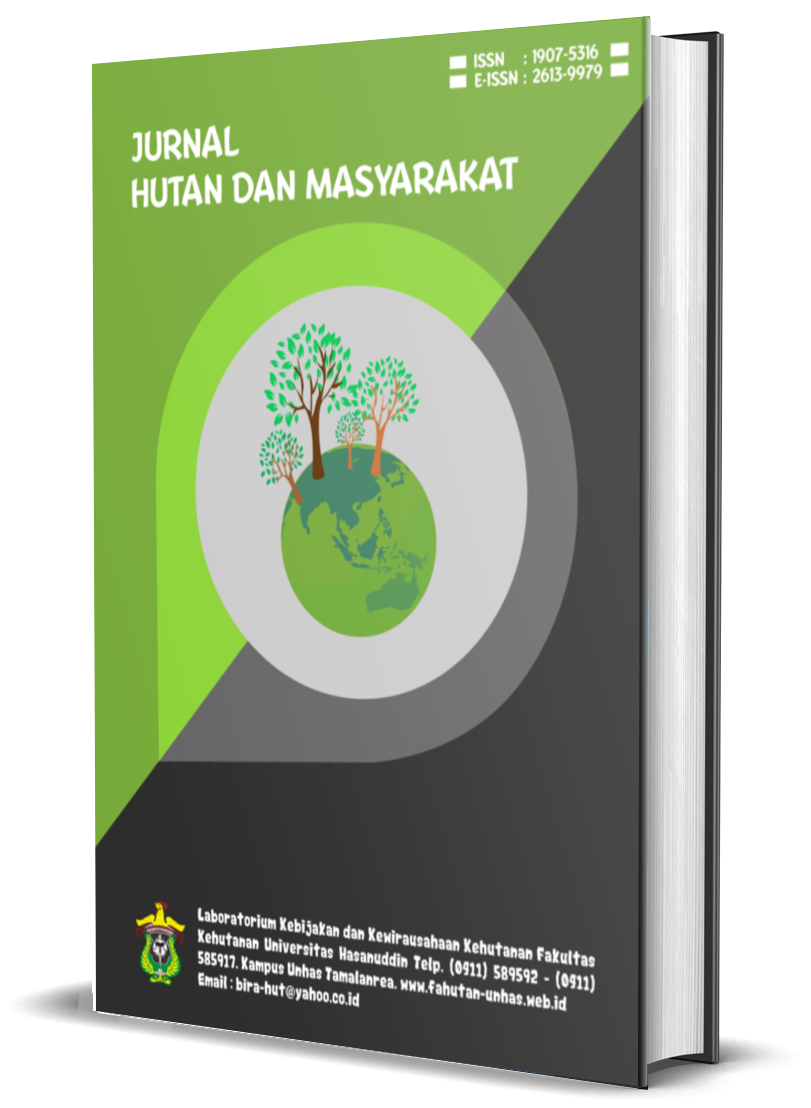Analisis Kompensasi Tanaman “Pak Patu” di Sekitar Taman Nasional Bantimurung Bulusaraung
Abstract
The change in the status of forest areas in Maros Regency to Bantimurung Bulusaraung National Park (TN Babul) has resulted in the loss of access for the community to the land they manage. The community of Labuaja Village, which has invested in land management by planting trees and managing forests, can no longer benefit from their hard work after the area was designated as part of the Babul National Park. This research aims to analyze the conflict between the community and the managers of Babul National Park regarding the utilization of forest land, as well as to explore fair compensation mechanisms based on the community's investment value. By using the approach of Forest Economic Rent and Rehabilitation Cost, this study calculates the compensation value of land invested by the community for planting and maintaining trees. The results indicate that there is significant potential for tree stands from land managed by the community, and the compensation value offered could be a solution to address the conflicts that arise. Recommendations for community investment-based compensation are expected to serve as a foundation for sustainable and fair policies, while also preserving the environment and the well-being of local communities.













